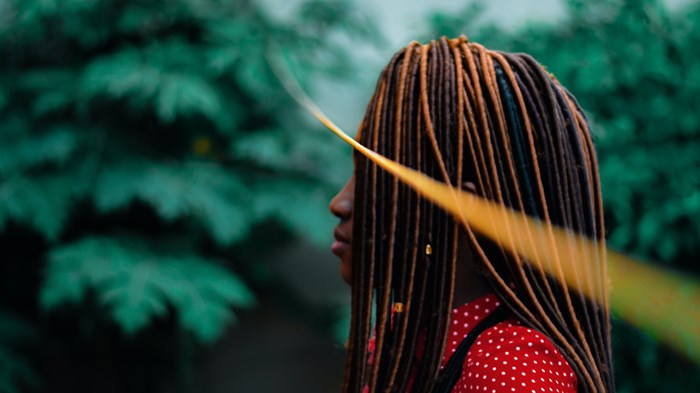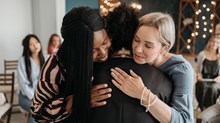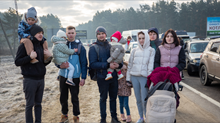I Escaped. Now I'm Using My Voice for Victims Trafficked to the U.S.

I spent more than four years living in the shadows as a victim of human trafficking. America may have outlawed slavery a century and a half ago, but there is still a frightening underground network of labor and sex trafficking in this country, even in the most unassuming communities.
I grew up in West Africa in a loving family, but my parents struggled to make ends meet. To us, Europe and America were places of prosperity and opportunity. I was 19 years old when, in 1999, a family friend asked me to go to Paris with her to help her with hair braiding. I was excited; I had never been out of West Africa before, and I was hopeful that I would be able to make money that I could send back to my family.
I arrived in Paris – but I was only in France for two days. Out of the blue, the family friend told me we were flying to the United States. She took me through airport security using a fake passport, and we flew to Atlanta, where she put me in an apartment with her. I wasn’t allowed to tell my family where I was, and this is when I first knew something wasn’t right, but it was too late. It was more than a year before my family even knew I wasn’t still in Paris.
I worked for this woman for four years as a hair braider, and I was never paid a dollar. I had food to eat and a place to sleep, but that was all. I worked seven days a week, often until two in the morning, and then waking up again four hours later to start all over again. I was frequently abused, physically, mentally and emotionally. I was treated like an animal, and I was made to feel like one. I lost so much weight that I was just skin and bones; I tried to commit suicide twice.
I’m often asked why I didn’t escape sooner. But I was in a strange new country where I knew no one. I didn’t speak the language, and I had no legal paperwork. I had nowhere to go, no one to tell and no way to explain what was happening to me. Trafficking was not even a word that was in my vocabulary, even in my native language.
I was only allowed to call my family when my trafficker was present. She put the phone on speakerphone and monitored everything I said. I knew that if I spoke out in any way against her, I would be beaten.
Finally, I ran. I turned to a friend, a former employee at the shop of my trafficker, and she hid me in her apartment. In 2011, I found a lawyer named Kadidja who could help me. I wanted to get the papers I needed to leave the country and go see my mother. But the lawyer told me that if I left the country, I would never be able to come back, because I was an illegal immigrant.
I sought out multiple lawyers to find a way to become a legal U.S. resident, but none of them could help me until 2015, when I met a lawyer named Kembra. She told me about human trafficking, and that’s when I realized that what I had been through was called labor trafficking. Thankfully, she put me in touch with an organization in Atlanta called Tapestri, which helped me get a visa, and they connected me to World Relief Triad, which then helped me start fresh in a new city and pay for an apartment, medical care and basic supplies. Once I received my legal documents, they even helped me find a job doing hair.
Today, I pay my own rent. I am working on getting my GED, and I hope to become a pharmacy technician. I feel like I am finally earning my place in America and giving back to the country that helped me escape from the prison I was in for so many years.
When I tell my story now, I tell people that trafficking happens right in front of us. Look up from your phone when you’re at the store, or walking down the street, or at the gas station. If you’re in law enforcement, be aware that people with stories like mine exist. If you’re a business owner, hire us. Find the organizations that are helping survivors, and ask how you can help.
You can also advocate. The visa I received, which dramatically changed the course of my life, would not exist without those who advocated for the passage of the Trafficking Victims Protection Act in 2000. Last year I joined more than 25,000 others in a letter urging our government to fully enforce this critical law once again.
I will never know the advocates whose influence made the legal change necessary for me to be protected in the U.S., nor the names of those who donated clothes, money, grocery gift cards and other items that found their way to me when I was getting onto my feet. To all of them, I say: Thank you for changing the life of a stranger you will never meet.
Pulcherie Kindoho is a survivor of human trafficking.
The Better Samaritan is a part of CT's
Blog Forum. Support the work of CT.
Subscribe and get one year free.
The views of the blogger do not necessarily reflect those of Christianity Today.






















